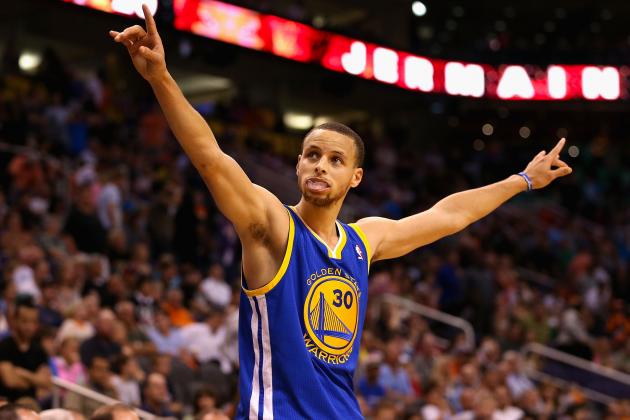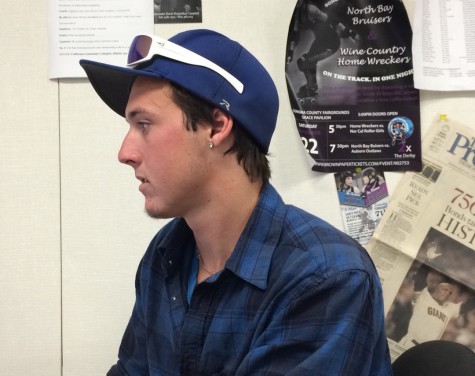This week, in an announcement that surprised no one outside the greater Houston area, Stephen Curry became the 2015 NBA MVP. Most years a player who averages 24 points a game while leading the league in win shares will easily win MVP. And while Curry was the favorite for the award from start to finish this season, players such as James Harden and Chris Paul put together strong campaigns worthy of consideration.
In the end though, this NBA season belonged to Curry. Unlike most athletes, the constant attention the media heaped upon him was for all the right reasons.Sometimes sarcastically labeled as a media “Golden Boy,” Curry is a dream come true for NBA Commissioner Adam Silver; a full-fledged superstar whose actions off the court are as impeccable as his performance on it.
Warriors General Manager Bob Myers described Curry as one of the few athletes who is even better in person than fans imagine. “Often we make assumptions about athletes that we look up to,” he said while introducing Curry at the MVP press conference. “Steph is one of the few athletes that easily surpasses our expectations.”
As Curry addressed the media during his MVP press conference, it was incredible how his humble and engaging spirit showed through in everything he said. Nothing about the way he spoke or carried himself was fake or superficial. As he thanked the people who have helped him get to this point in his career, he had something unique and heartfelt to tell each person.
Whether it was an equipment manager, a security guard or a workout partner, he let each person know that he cherished them and would never forget their contribution to his career and life. He thanked his teammates, one by one, sharing with the audience a story about each one of them. As the camera panned to each player, the way his teammates smiled and laughed like little kids as he talked about them told those watching at home all they needed to know about the teammate and person Stephen Curry is.
During a KNBR interview, Davidson College coach Bob McKillop called Curry’s love of the game “infectious,” citing it as the main reason Curry is so fun to watch. “He plays the game with such joy, and that feeling is shared with everyone in the arena through his play,” McKillop said. The Warriors’ current season reads like a fairy tale: 67 regular season wins, home court advantage throughout playoffs, and a first-round sweep of the scrappy New Orleans Pelicans.
Curry’s performance is at the root of the team’s success, and while he often makes the impossible look easy, Curry’s path to this moment was anything but. It may seem like an eternity, but it wasn’t long ago that doctors didn’t know if he could continue to play basketball.
In December 2011, Curry hung onto the broad shoulders of two teammates, somehow looking even smaller than he actually is. His bright blue eyes were red-rimmed and bloodshot from tears. He held his leg suspended in the air, unable to put weight on it, as the ligament had been torn away from the bone. This scene was all too familiar to Warriors fans.
Watching this scene unfold on television, fans saw a player too weak to keep up in a league full of physical specimens. This was Curry’s second major ankle injury in 15 months, not to mention the countless sprains and tweaks he was forced to nurse throughout the months in between.
Curry did not receive any college offers from Division I schools; they were skeptical about his abilities to overcome perceived physical limitations. As his ankle crumbled beneath him, it seemed as though Curry had missed his chance to prove those doubters wrong.
Fast forward to today and Stephen Curry stands tall upon the stage, accepting the Maurice Podoloff Trophy, recognizing him as the NBA’s best player. In a league so full of mass, muscle and high-flying dunks, no player flew higher than Curry. The scrawny kid with ceramic ankles has reached the top, but he doesn’t look down on anyone.




